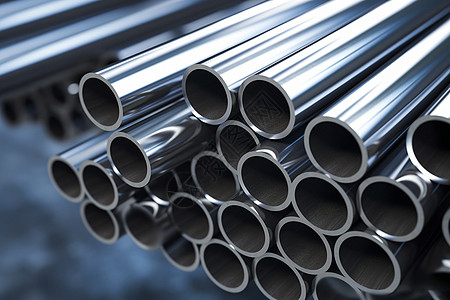Table of Contents
Benefits of Using API Oil Well Casing Tubing Pipes
API oil well casing tubing pipes are essential components in the oil and gas industry, providing structural support and protection for the wellbore. These seamless steel casing pipes are designed to withstand high pressure, corrosive environments, and extreme temperatures, making them ideal for use in challenging drilling conditions. In this article, we will explore the benefits of using API oil well casing tubing pipes, specifically those made from K55, J55, N80, L80, T95, and P110 grades of steel.
One of the primary advantages of API oil well casing tubing pipes is their durability and strength. These pipes are manufactured to meet stringent industry standards set by the American Petroleum Institute (API), ensuring that they can withstand the rigors of drilling and production operations. The seamless design of these pipes eliminates weak points and potential leak paths, providing a reliable and long-lasting solution for oil and gas extraction.
In addition to their durability, API oil well casing tubing pipes offer excellent corrosion resistance. The steel used in these pipes is specially formulated to resist the corrosive effects of drilling fluids, brine, and other harsh substances encountered in the wellbore. This corrosion resistance helps to extend the service life of the pipes, reducing the need for costly repairs and replacements.
Another key benefit of API oil well casing tubing pipes is their versatility. These pipes are available in a range of sizes, grades, and specifications to meet the unique requirements of each drilling project. Whether drilling in shallow or deep wells, onshore or offshore, API casing tubing pipes can be customized to provide the optimal solution for the application.
Furthermore, API oil well casing tubing pipes are designed to facilitate efficient and safe drilling operations. The smooth, seamless surface of these pipes allows for easy installation and removal, reducing the risk of damage to the wellbore and equipment. Additionally, the high strength-to-weight ratio of API casing tubing pipes makes them easier to handle and transport, improving overall operational efficiency.
API oil well casing tubing pipes also play a crucial role in well integrity and production optimization. By providing structural support and sealing off the wellbore from surrounding formations, these pipes help to prevent fluid migration, gas leaks, and other potential hazards. This ensures the Safety of personnel and equipment on the drilling rig, as well as the long-term productivity of the well.
In conclusion, API oil well casing tubing pipes offer a wide range of benefits for the oil and gas industry. From their durability and corrosion resistance to their versatility and efficiency, these pipes provide a reliable and cost-effective solution for drilling and production operations. Whether using K55, J55, N80, L80, T95, or P110 grades of steel, API casing tubing pipes are essential components for ensuring the success of oil and gas projects.
Comparison of Seamless Steel Casing Pipes Grades: K55, J55, N80, L80, T95, P110
API oil well casing tubing pipes are essential components in the oil and gas industry, used to protect and support the wellbore during drilling and completion operations. Seamless steel casing pipes are preferred for their strength, durability, and resistance to corrosion. There are several grades of seamless steel casing pipes available, each with its own unique properties and characteristics. In this article, we will compare the grades K55, J55, N80, L80, T95, and P110 to help you understand their differences and applications.
K55 is a grade of seamless steel casing pipe that is commonly used in shallow wells and low-pressure applications. It has a minimum yield strength of 55,000 psi and is suitable for environments with mild to moderate corrosive conditions. J55 is another common grade of seamless steel casing pipe with a minimum yield strength of 55,000 psi. It is often used in wells with moderate to high pressures and temperatures.
N80 is a higher grade of seamless steel casing pipe with a minimum yield strength of 80,000 psi. It is suitable for wells with high pressures and temperatures and is resistant to corrosion in harsh environments. L80 is a grade of seamless steel casing pipe that is heat-treated to improve its mechanical properties. It has a minimum yield strength of 80,000 psi and is commonly used in wells with high pressures and temperatures.
T95 is a grade of seamless steel casing pipe that is heat-treated to improve its toughness and resistance to cracking. It has a minimum yield strength of 95,000 psi and is suitable for wells with high pressures and temperatures. P110 is the highest grade of seamless steel casing pipe with a minimum yield strength of 110,000 psi. It is heat-treated to improve its mechanical properties and is commonly used in wells with extreme pressures and temperatures.
When choosing a grade of seamless steel casing pipe, it is important to consider the specific requirements of the well and the operating conditions. Factors such as pressure, temperature, corrosive conditions, and depth of the well will all influence the selection of the appropriate grade. K55 and J55 are suitable for shallow wells and low-pressure applications, while N80, L80, T95, and P110 are better suited for wells with high pressures and temperatures.
In conclusion, seamless steel casing pipes are essential components in the oil and gas industry, providing protection and support for the wellbore during drilling and completion operations. There are several grades of seamless steel casing pipes available, each with its own unique properties and characteristics. When choosing a grade of seamless steel casing pipe, it is important to consider the specific requirements of the well and the operating conditions to ensure optimal performance and reliability.
Maintenance Tips for API Oil Well Casing Tubing Pipes
API oil well casing tubing pipes are essential components in the oil and gas industry, used to extract and transport oil and gas from deep underground reservoirs. These pipes are subjected to harsh conditions, including high pressure, corrosive fluids, and extreme temperatures. To ensure the longevity and efficiency of API oil well casing tubing pipes, proper maintenance is crucial. In this article, we will discuss some maintenance tips for API oil well casing tubing pipes, focusing on seamless steel casing pipes with various grades such as K55, J55, N80, L80, T95, and P110.
One of the most important maintenance tasks for API oil well casing tubing pipes is regular inspection. Inspecting the pipes for signs of corrosion, wear, or damage is essential to prevent leaks and ensure the integrity of the well. Visual inspections can be done by trained personnel, looking for any signs of rust, pitting, or cracks on the surface of the pipes. In addition to visual inspections, non-destructive testing methods such as ultrasonic testing or magnetic particle inspection can be used to detect internal defects in the pipes.
Another crucial maintenance tip for API oil well casing tubing pipes is proper cleaning and flushing. Over time, oil and gas residues can build up inside the pipes, leading to reduced flow rates and increased pressure drop. Regular cleaning and flushing of the pipes can help remove these deposits and improve the overall performance of the well. Chemical cleaning agents can be used to dissolve stubborn deposits, followed by high-pressure flushing to remove any remaining residue.
https://www.youtube.com/watch?v=kcGBRz7l738
In addition to regular inspections and cleaning, it is important to protect API oil well casing tubing pipes from external factors that can cause damage. Corrosion is a common issue in oil and gas wells, caused by exposure to corrosive fluids or environmental factors. To prevent corrosion, protective coatings can be applied to the pipes, such as epoxy coatings or galvanization. In addition, cathodic protection systems can be installed to protect the pipes from corrosion by creating an electrical current that prevents the formation of rust.

Proper handling and storage of API oil well casing tubing pipes are also important for maintaining their integrity. Pipes should be handled with care to prevent dents, scratches, or other damage that can compromise their structural integrity. When storing pipes, they should be kept in a dry, well-ventilated area to prevent rust and corrosion. Pipes should be stored in a horizontal position, with adequate support to prevent bending or deformation.
Regular maintenance of API oil well casing tubing pipes is essential to ensure the safety and efficiency of oil and gas operations. By following these maintenance tips, operators can prolong the life of their pipes, reduce the risk of leaks and failures, and optimize the performance of their wells. Inspecting the pipes regularly, cleaning and flushing them, protecting them from corrosion, and handling and storing them properly are all key aspects of maintaining API oil well casing tubing pipes. By investing in proper maintenance, operators can ensure the long-term success of their oil and gas operations.

